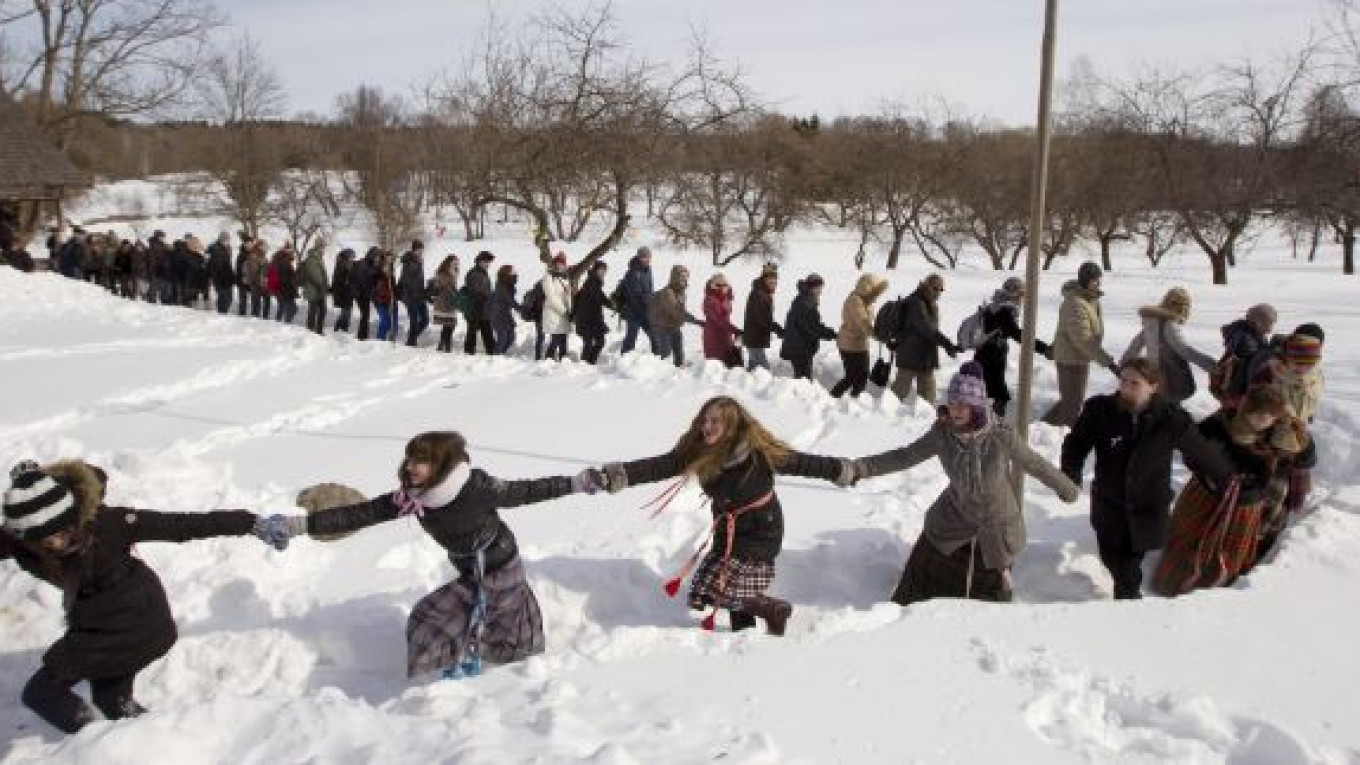MINSK— The International Monetary Fund urged Belarus to stop cutting interest rates and boosting wages and other spending in pursuit of high growth and focus on curbing inflation and maintaining macroeconomic stability.
The former Soviet republic, which suffered from a balance-of-payments crisis in 2011 and had to devalue its ruble by 65 percent, started cutting rates and increasing government spending last year in order to boost economic growth.
But this led to fresh pressure on the ruble and accelerated inflation, prompting the central bank to freeze rates between September and March, when the bank cut its key rate again to 28.5 percent.
David Hofman, head of an IMF mission visiting Belarus this week, said the last rate cut was premature as the rate may need to be raised again if inflation speeds up.
"The authorities should avoid a repeat of the stop-go policy pattern of 2012 and pursue predictable and consistent macroeconomic policies that promote stability," Hofman told reporters in Minsk late Monday.
He urged the government and the central bank to focus on reducing inflation and "containing external imbalances."
"This is even more important as a deteriorating balance of payments and high external debt service pose challenges," he said.
Belarus' current account, which showed a surplus in the first half of 2012, went into deficit in the second half of the year.
Hofman said last year's wage increases — the average wage grew 23 percent year on year in January — had "reversed much of the competitiveness gains from the 2011 devaluation."
The IMF has not lent to Belarus since 2010 and has made it clear that a new program would require its authoritarian leader, Alexander Lukashenko, to commit to potentially painful market reforms — something that he may be reluctant to do.
Instead, his government, which aims to speed up economic growth to 8.5 percent this year from 1.5 percent last year, is seeking a fresh $2 billion loan from Russia, which already bailed Minsk out of the last crisis.
Lukashenko, in power since 1994, has kept in place a largely Soviet-style economy, in which most companies are run by the state. Prices are controlled by the government, and much of bank lending is state-directed and subsidized.
Related articles:
A Message from The Moscow Times:
Dear readers,
We are facing unprecedented challenges. Russia's Prosecutor General's Office has designated The Moscow Times as an "undesirable" organization, criminalizing our work and putting our staff at risk of prosecution. This follows our earlier unjust labeling as a "foreign agent."
These actions are direct attempts to silence independent journalism in Russia. The authorities claim our work "discredits the decisions of the Russian leadership." We see things differently: we strive to provide accurate, unbiased reporting on Russia.
We, the journalists of The Moscow Times, refuse to be silenced. But to continue our work, we need your help.
Your support, no matter how small, makes a world of difference. If you can, please support us monthly starting from just $2. It's quick to set up, and every contribution makes a significant impact.
By supporting The Moscow Times, you're defending open, independent journalism in the face of repression. Thank you for standing with us.
Remind me later.






